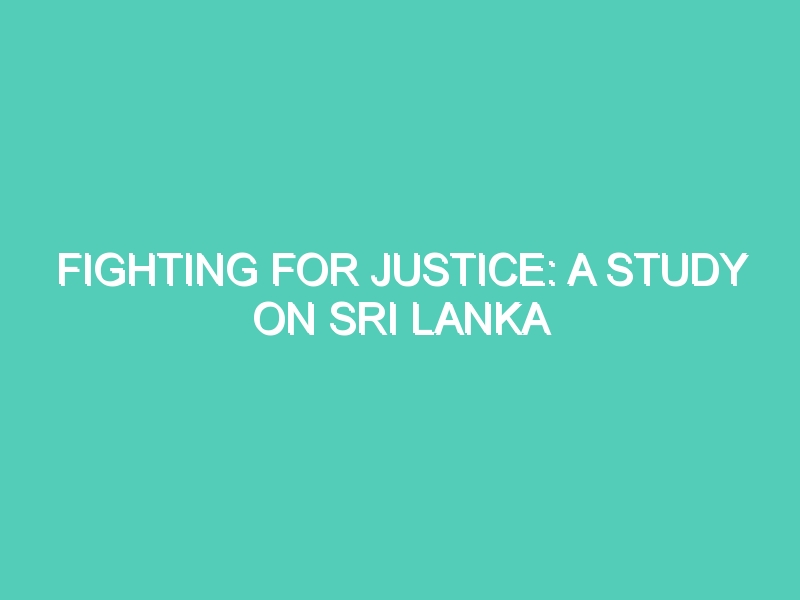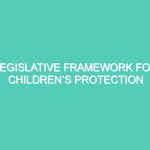INTRODUCTION
Do you remember the deadly bomb blasts that took place in Sri Lanka which targeted churches on a weekend which included the Easter Sunday, when Christians were gathered there in huge numbers or the bombing hotels? Nearly 320 people were killed according to the Sri Lankan government. The history of Sri Lanka as we all know consists of a three-decade long civil war which ended finally in 2009.
The country till recent times had not seen peaceful days, as the leaders of the Sinhalese Buddhist, which is the dominating population have made the environment extremely hostile for the religious minorities of the country, which particularly comprises of Christians and Muslims and the Tamils. Sri Lankan politics has been long defined more by ethnic tensions rather than religious. The government of this country has done nothing except for giving empty reassurances to the victims.
In this article, we’ll be focusing on how gravely these religious minorities have been affected, particularly the Muslim Community, through continuous abuse of their rights and the hardships and challenges they have to face at the hands of their government.
CHALLENGES FACED BY TAMILS
In Sri Lanka too little has changed in the past decade. Torture against the minorities still continues, despite the government’s promise to promote human rights, when it got elected to power in 2015. The documented evidence of torture shows the bitter truth of the brutality faced by the Tamil citizens.
A report shows that during interrogation, the police and other state officials routinely use torture as a method on Tamilians in order to extract information about any anti-government activity or criminal investigation etc.
The torture includes both physical as well as psychological torture like beating with instruments, burning, rapes, asphyxiation, and sexual torture. This often led to heavy scars being left on bodies of the survivors.
The state officials in various cases have been held responsible for all heinous human rights violations, including but not limited to torture, extra-judicial killings, as well as noteworthy violations of international humanitarian law, war crimes and disappearances. The LTTE has also been held accountable for targeted killings and suicide bombings, among other abuses.
CHALLENGES FACED BY CHRISTIANS
The hostile environment for Christians has manifested into a number of violent incidents ranging from hate speech and threats to attacks on places of worship as well as mass violence. Hostility towards Christians in Sri Lanka is not a new thing to see, it dates back to almost 30 years. The particular target of this community is mainly the Evangelical Christians.
They have been facing so many different types of violations be it intimidation or destruction of their personal property or physical violations and discrimination or threats and being harassed by state officials. Incidents where a mob surrounds the church and then tells them to close down the church and if they don’t listen, threatens to use violence or kill the clergy members and / or the worshipers are common like the one on a Methodist church in the town of Anuradhapura.
Discrimination also has taken various forms in the country whether it forcing a person to follow rituals observed by Buddhists or people having to change the venue of their wedding since they were not supposedly allowed to marry in their own village or stopping Christians from worshiping together at a particular venue. It has been observed in various international reports, that the clergy are often the primary target groups.
Apart from this when we look at the police officials or the state authorities, even they are not afraid of harassing the religious minorities in the country. There have been so many incidents to portray this very fact. The authorities will deliberately violate the rights of the victims, or they will particularly discriminate against one person of the entire community purely based on his religion. It has also been observed that the police officials refuse to register complaints by the religious minorities.
CHALLENGES FACED BY MUSLIMS
Ever since the Easter Sunday bombings happenedin April 2019, which killed more than 250 people, the Sri Lankan Muslims have been facing an increase in violations related to their basic rights. Apart from this, assaults and other sort of abuses as well from the Buddhist nationalists, all owing to the fact that the bombings were claimed by Islamist militants which indirectly led to the whole community being targeted.
Since the day of the bombings, the Sri Lankan authorities have arbitrarily arrested and detained hundreds of people under counter-terrorism and emergency laws. According to lawyers and activists, the vast majority of arrests have taken place under the Prevention of Terrorism Act[i](PTA), which allows long-term detention without a charge or a trial. Prevention of Terrorism Act is nothing but a long-abused law, and the government had even pledged to the United Nations Human Rights Council that they would repeal the law. Lawyers have said their clients have often been arrested without any credible evidence of terrorist involvement.Muslims have been arrested for bizarre reasons including having the Quran or other Arabic literature in their possession during searches.
Meanwhile the Christians have been detained if they were foundpossessing the picture of a ship’s wheel,considered to be similar to a sacred Buddhist symbol on their dress. The army mercilessly picks people up and hands them over to the police. The police then further books them without an investigation. The state officialsfollow a slow process and cause unnecessary delays in releasing people because they don’t want to be seen as having a soft corner by the ultra-nationalists.
The violations of rights of the Muslim community are almost similar with that of the Christians with only slight variations. The Muslims are also victims of destruction of their property, physical violence, death threats, intimidation, as well as other discriminatory practices. This community also has to face Economic restrictions from time to time which basically include the boycotting of Muslim owned businesses and putting a ban on their shops etc.
Another type of incidents which we often come across and which is not particularly aimed at this communityonly, is Mob Violence.In the immediate aftermath of the Easter Sunday bombings, angry crowds threatened and assaulted refugees and asylum seekers, many of whom were Muslims from other South Asian countries.[ii]
Around 1,400 were forced to take shelter in unsuitable and crowded temporary accommodation for their safety.[iii]Mob violence continued for several days and hadoccurred in towns primarily across the North Western province, in which Muslim-owned homes and businesses were attacked and at least one man had passed away.[iv]
An investigation which was undertaken by the Human Rights Commission of Sri Lanka revealed that it doesn’t appear likeany preventive measures were taken, even after knowing that retaliatory violence against the Muslim communities was a distinct possibility after the terror attacks which occurred on 27 April. The commission also found out that the villagers had indeed called the police just a few hours prior to the happening of the incident in order to seek protection, and despite this, no preventive measures were taken.
In one of the reports, it was also found that a Muslim man living in the North Western province, whose shop was partially destroyed by mobs, told that even though the anticipation of the attack was known, the security forces of the country did nothing to prevent it. It seemed extremely clear on the part of the police that they did not want to do anything to stop the violence.
In 2018, a state of emergency had to be declared after shops owned by Muslims as well as their homes were burned down. The government body, Human Rights Commission of Sri Lanka found out that the government has repeatedly failed to protect the Muslim community during communal rioting. Police have also recurrentlyproved to be futile to act in accordance to the law or to prosecute the perpetrators. Hate speech is the most common way of discrimination and is the most used tactic to instigate the community to use physical violence.
Officials have made no or very little efforts to discourage public campaigns conducted by religious figures that almost always pose the Muslim community a greater risk.
Yet another issue confronted by the women of this community is the disregard of their traditional dress code. This happened when Sirisena ordered to put a ban on face coverings in public areas as an emergency measure, which was imposed after the Easter Sunday bombings. This step has ledthe Muslim women to become the targets, even for wearing headscarves. It was observed that the Muslim women have to face constant harassment, be it in government buildings and/or public spaces. It is extremely difficult for the women to bear the continuous degradation of their dignity.
THE WAY FORWARD
The Christians and Muslims in the country have already developed a greater understanding for each other and now exhibit a degree of solidarity. To the government of the country, my suggestions would be that effective legal measures should be taken against all those people who are responsible for inciting hate speech in any manner whatsoever against the religious minorities. This indirectly means stricter enforcement of the already existing laws by the law enforcing agents like police, who in addition must act immediately against the violators. While doing so, it must be ensured that hate speech in any manner is not mixed with right to freedom of speech and expression.
Moreover, the government should publicly condemn religious intolerance in any form and this should be made clear through various policies, posters, banners etc. Awareness must be created among the perpetrators that violence will not be tolerated.Furthermore, the Constitution should be amended in such a way that it also takes into account the interest of the religious minorities. It should be inclusive of policies essential for the promotion as well as protection of these minorities.
Also, as far as the state officials are concerned, they all should be given proper training for creating awareness and sensitizing them to the human rights of the persecuted minorities. If they still violate the rules, then strict penalties should be levied on them. It is high time for the Sri Lankan government to realise that it needs to take a stand against discrimination and intolerance, besides using the law to punish those responsible for abuses. It should also protect the vulnerable people instead of targeting them.
It’s still not late enough for the Sri Lankan government to make the Zero Tolerance Policy on Torture a reality. For this, their first step should be tothe suspension of officers accused of torture, from continuing their duty. They must also, reaffirm Sri Lanka’scommitment to promoting reconciliation and accountability and human rights through a renewed Human Rights Council resolution that has time-bound commitments for implementation.[v]
The authorities in Sri Lanka should put an end to arbitrary arrests and all other abuses aimed at the religious minorities and appropriately protect their communities from violence.Sri Lankan officials and politicians ought to stop endorsing, overlooking, or manipulating hate speech in additionto mob violence which is directed at the religious minorities by members of the Buddhist clergymen and other powerful figures.[vi]
CONCLUSION
Sri Lanka has made some progress so far to broaden the base of human rights and has even brought reformsin the area,but it’s still does not suffice.The country’s government haddeclaredthat it will commit to protect human rights, and the said promise seems quite empty when we see it in the context of the ongoing persecution of the religious minorities. The UN along with the minorities are of the view that the Human Rights Council is an important organ and also plays an important mechanism for delivering justice.Despite the continuous assurances of the government, very little has changed since the past decade.
All this can be changed by simply ensuring full rights and protection of all the country’s religious communities and punishing perpetrators.It is essential for the government to do so if Sri Lanka is to move forward from the traumas of its past towards a more peaceful and sustainable future.[vii].Some progress has been made so far, still the steps taken have fallen short. What the country now needsis meaningful change.
Article Written By- Gauri Choubay
Law Student– DME School of Law
(HRDI Work From Home Internship)
[i]https://www.hrw.org/report/2018/01/29/locked-without-evidence/abuses-under-sri-lankas-prevention-terrorism-act
[ii]https://www.hrw.org/news/2019/04/29/sri-lanka-refugees-threatened-attacked
[iii]https://www.lankaenews.com/news/3018/en
[iv]https://www.aljazeera.com/news/2019/05/sri-lanka-hardline-buddhists-attacks-muslims-190515161553706.html
[v]https://www.freedomfromtorture.org/news/unbearable-treatment-torture-continues-despite-sri-lankan-governments-promise
[vi]https://www.aa.com.tr/en/asia-pacific/muslims-in-sri-lanka-under-threat-rights-group/1523710
[vii]https://minorityrights.org/wp-content/uploads/2016/12/MRG_Rep_SriLan_Dec16.pdf



